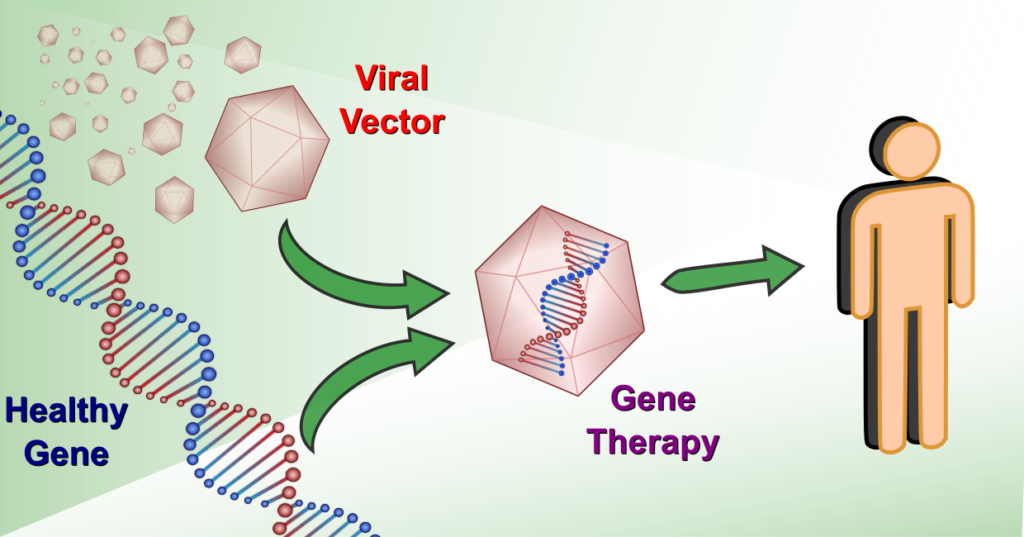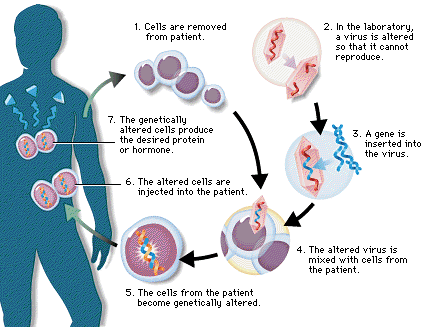Gene Therapy Triumphs: Unveiling Breakthroughs in Genetic Medicine

The advent of gene therapy heralds a new
era in medicine, where the manipulation of genetic material offers
unprecedented opportunities to combat inherited disorders, refractory diseases,
and unmet medical needs. By harnessing the power of genetic manipulation, gene
therapy endeavors to correct aberrant genes, restore normal cellular function,
and mitigate the underlying causes of genetic maladies. In this comprehensive
report, we embark on a journey through the annals of gene therapy successes,
unraveling remarkable breakthroughs, innovative approaches, challenges
overcome, and the promising future of genetic medicine.
Historical
Context
The journey of gene therapy commenced in
the late 20th century, with pioneering experiments laying the groundwork for
subsequent advancements. The seminal clinical trial conducted in 1990, where a
patient with severe combined immunodeficiency (SCID) was treated with gene
therapy, marked the dawn of this revolutionary approach. Despite initial
setbacks and challenges, the field has witnessed remarkable progress over the
decades, with numerous successes illuminating the path forward.

Triumphs
in Gene Therapy
Treatment
of Rare Genetic Disorders: Gene therapy has emerged
as a beacon of hope for individuals afflicted with rare genetic disorders,
offering potential cures where conventional treatments fall short. Notable
successes include the treatment of inherited retinal disorders, such as Leber congenital
amaurosis (LCA), where gene therapy interventions have restored vision in
patients previously facing progressive blindness. Similarly, diseases like
cystic fibrosis, Huntington's disease, and lysosomal storage disorders have
witnessed significant advancements through gene therapy interventions, with
promising results in preclinical and clinical trials.
Hematological
Disorders: Hematological disorders, including
hemophilia and beta-thalassemia, have witnessed significant advances in gene
therapy. The successful delivery of functional genes to hematopoietic stem
cells has enabled sustained production of deficient blood proteins, alleviating
symptoms and reducing the need for frequent transfusions in affected
individuals. Notable breakthroughs include the use of lentiviral vectors for
gene transfer in beta-thalassemia patients, leading to improved hemoglobin
levels and reduced transfusion dependence.
Neurological
Disorders: Gene therapy holds promise in addressing
neurological disorders characterized by genetic mutations, such as spinal
muscular atrophy (SMA) and Duchenne muscular dystrophy (DMD). Intrathecal
delivery of gene therapies targeting the underlying genetic defects has
demonstrated encouraging results in preclinical and clinical trials, offering
hope for patients grappling with these devastating conditions. In the case of
SMA, the FDA-approved gene therapy drug, Zolgensma, has shown remarkable
efficacy in extending survival and improving motor function in infants with the
most severe form of the disease.
Cancer
Immunotherapy: Gene therapy has revolutionized
cancer treatment paradigms through the development of chimeric antigen receptor
(CAR) T-cell therapies. Engineered T-cells expressing synthetic receptors
targeting tumor-specific antigens have exhibited remarkable efficacy in
treating hematological malignancies, paving the way for personalized cancer
immunotherapies. Notable successes include the FDA approval of CAR T-cell
therapies for the treatment of relapsed or refractory B-cell acute
lymphoblastic leukemia (ALL) and diffuse large B-cell lymphoma (DLBCL),
demonstrating durable remissions and improved survival outcomes in patients.
Infectious
Diseases: Gene therapy holds potential in combating
infectious diseases by conferring resistance to viral infections. Strategies
involving the delivery of engineered genes encoding antiviral proteins or
RNA-based therapeutics have demonstrated efficacy in preclinical models,
offering a novel approach to bolstering host immunity against viral pathogens.
Recent advancements in mRNA-based vaccines, exemplified by the mRNA COVID-19
vaccines developed against the SARS-CoV-2 virus, highlight the transformative
potential of gene-based interventions in combating global health threats.

Overcoming Challenges
The journey of gene therapy has been
fraught with challenges, ranging from safety concerns to technical limitations.
However, concerted efforts by researchers, clinicians, and regulatory agencies
have led to significant strides in overcoming these obstacles:
Vector
Development: Innovations in vector design and
optimization have enhanced the safety and efficacy of gene delivery systems.
Advances in viral vectors, such as adeno-associated viruses (AAVs) and
lentiviral vectors, have facilitated efficient gene transfer with reduced
immunogenicity and off-target effects. Furthermore, the development of
non-viral vectors, including lipid nanoparticles and polymer-based delivery
systems, offers alternative approaches for gene delivery with improved safety
profiles and scalability.
Immunogenicity
and Safety: Strategies to mitigate immune responses
to gene therapy vectors, including immune modulation and vector engineering,
have improved the safety profile of gene therapy interventions. Enhanced vector
tropism and tissue-specific targeting strategies have minimized off-target
effects and adverse reactions, thereby enhancing the therapeutic index of gene
therapies. Additionally, the use of immune-evasive or immunomodulatory gene
editing tools, such as CRISPR-Cas9 variants, holds promise for reducing immune
responses and improving the long-term safety of gene therapy interventions.
Precision
Genome Editing: The advent of precision genome
editing technologies, exemplified by CRISPR-Cas9, has revolutionized gene
therapy approaches. Precise manipulation of the genome enables targeted
correction of disease-causing mutations, offering potential cures for a myriad
of genetic disorders. Notable advancements include the correction of mutations
associated with sickle cell disease and beta-thalassemia in preclinical models
using CRISPR-Cas9-mediated genome editing, paving the way for clinical translation
of these therapies.
Regulatory
Oversight: Rigorous regulatory oversight and
clinical trial protocols ensure the safety and efficacy of gene therapy
interventions. Regulatory agencies, such as the U.S. Food and Drug
Administration (FDA) and the European Medicines Agency (EMA), play a crucial
role in evaluating gene therapy products, fostering public confidence and
facilitating their translation into clinical practice. The establishment of
guidelines for the design and conduct of gene therapy trials, including
criteria for patient selection, monitoring of adverse events, and long-term
follow-up, ensures the ethical conduct of clinical research and the safety of
patients participating in gene therapy trials.
Patient
Access and Affordability: Ensuring equitable access
to gene therapy treatments remains a significant challenge, particularly
concerning cost and reimbursement issues. The high upfront costs associated
with gene therapy development and manufacturing, coupled with uncertainties regarding
long-term efficacy and durability, pose challenges for healthcare systems and
payers in providing access to these therapies for eligible patients. Efforts to
address these challenges include the development of innovative pricing models,
such as value-based pricing and outcomes-based agreements, to align
reimbursement with treatment outcomes and facilitate patient access to gene
therapy treatments.

The Future of Gene Therapy
Future
Directions
The future of gene therapy holds immense
promise, with ongoing research endeavors poised to unlock new frontiers in
genetic medicine:
Expanded
Therapeutic Targets: Advances in gene delivery
technologies and genome editing tools are expanding the repertoire of
therapeutic targets for gene therapy. Novel approaches targeting complex
genetic disorders, autoimmune diseases, and infectious pathogens hold potential
for addressing unmet medical needs and improving patient outcomes. Emerging
areas of research include the development of gene therapies for
neurodegenerative diseases, cardiovascular disorders, and inherited metabolic
disorders, leveraging innovative delivery strategies and precision genome
editing technologies to achieve therapeutic efficacy.
Personalized
Medicine: The advent of precision medicine
approaches, informed by genomic profiling and patient-specific characteristics,
promises tailored therapeutic interventions optimized for individual patients.
Personalized gene therapy strategies, guided by genetic testing and predictive
modeling, offer the prospect of optimized treatment outcomes and reduced
adverse effects. The integration of multi-omics data, including genomics,
transcriptomics, and proteomics, enables comprehensive molecular profiling of
patients, facilitating the identification of targetable genetic alterations and
the customization of gene therapy treatments based on individual molecular
profiles.
Gene
Editing Innovations: Continued advancements in
genome editing technologies, including base editing and prime editing, are
poised to revolutionize gene therapy approaches. Precise correction of
disease-causing mutations, allele-specific targeting, and epigenetic
modifications hold promise for treating a wide spectrum of genetic disorders
with unprecedented precision. The development of next-generation genome editing
tools with improved specificity, efficiency, and safety profiles, coupled with
advancements in delivery technologies and gene regulation strategies, will
further expand the therapeutic potential of gene editing for a diverse range of
applications.
Combination
Therapies: Synergistic combinations of gene therapy
with conventional treatments, immunotherapies, and small molecule drugs offer
enhanced therapeutic efficacy and combinatorial benefits. Integrated treatment
regimens tailored to the molecular profiles of individual patients hold
potential for overcoming treatment resistance and improving long-term outcomes.
Combinatorial approaches encompassing gene therapy, immunotherapy, and targeted
therapies are being explored for the treatment of cancer, autoimmune diseases,
and infectious diseases, aiming to harness the synergistic effects of different
therapeutic modalities to achieve durable responses and improve patient
survival.
Editor’s
Thoughts:
Gene therapy stands at the vanguard of
genetic medicine, offering unprecedented opportunities to address inherited
disorders, refractory diseases, and unmet medical needs. Through a convergence
of scientific innovation, clinical translation, and regulatory diligence, gene
therapy has transformed from a conceptual possibility to a tangible reality,
offering hope to countless individuals grappling with genetic maladies. While
challenges persist, the remarkable successes and promising future of gene
therapy underscore its pivotal role in shaping the landscape of healthcare and
ushering in a new era of personalized medicine.


